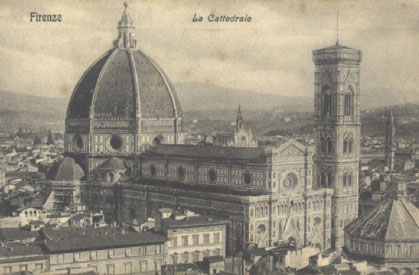HIU34546 Renaissance Florence 1347-1527

Florence was one of the largest and most glamorous towns in renaissance Europe. This module examines its history between the onset of the Black Death (in 1348) and the Sack of Rome (in 1527). The parameter dates do not coincide exactly with the rule of the Medici family in Florence – but the political backdrop to our analysis of the city is both the growing power of the Medici family, initially under Cosimo (1389–1464), and the opposition to the Medici, manifested in their expulsion (first in 1494 and then again in 1527).
- Module Coordinator:
- David Ditchburn
- Duration:
- Hilary term
- Contact Hours:
- 2 hours per week
- Weighting:
- 10 ECTS
- Assessment:
- 2 x essays (40% and 60%)
This is not, however, a module in political history―so don’t expect a political narrative to drive our agenda. Focussing especially upon social and cultural issues, topics covered will include social and household structures; public rituals; attitudes to class, culture, death, gender, minorities, religion and wealth; and the effects of social and economic change on Florentine society. Seminars will involve analysis of a variety of primary sources (in translation), including art, autobiographies, diaries, histories, letters and sermons, approached through a diverse range of methodologies.

